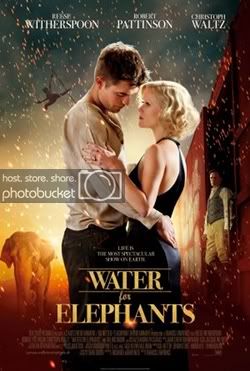Review: The Greatest Movie Ever Sold *Hot Docs*
Dir. Morgan Spurlock
United States
90 Minutes
2011
Inspired by Naomi Klein’s seminal, anti-capitalist treatise No Logo, Radiohead toured Europe in the autumn of 2000 in a portable, purpose-built tent, wholly devoid of corporate branding. The Kid A release tour concluded with a three-city visit to North America, bookended by shows at Manhattan’s Roseland Ballroom, and L.A.’s Greek Theatre – both intimate, brand-minimal venues. The second date, in Toronto, was a glaring aberration: somehow, the band was booked to perform in the “Sears Theatre”, a concert-friendly configuration of the Air Canada Centre.
That evening, lead singer Thom Yorke seized on the palpable irony with derisive relish, and proceeded to dedicate each song to an imagined corporate sponsor. “Optimistic” was for Molson, “Airbag” for Ford, and, eight years prior to HP’s collaboration with fashion designer Vivienne Tam, “Paranoid Android” for IBM and Gucci. It was a delightfully subversive response to a potentially thorny question of artistic credibility, and typical of Yorke’s iconoclastic intelligence.
Echoing that response is impresario documentarian Morgan Spurlock, via Hot Docs opening night selection The Greatest Movie Ever Sold. Presented in lucrative partnership with POM Wonderful, the film is the Super Size Me helmer’s synergized, monetized take on 8½: a look at the prevalence of branding, co-marketing, and product placement in present-day Hollywood, funded, entirely and overtly, by branding, co-marketing, and product placement. Premised on the reality that independent cinema, generally, and documentary filmmaking, in particular, struggles to compete for audience attention against big-budget, ad-backed blockbusters, Spurlock cleverly employs Yorke’s, “If you can’t beat ‘em, join ‘em” posturing, to similarly subversive effect.
Where Spurlock and Radiohead depart, to an extent, is in the tone and sincerity of the exercise; Yorke’s playfully caustic sponsorships were fleeting, fictitious remarks, while Spurlock actually and earnestly courted corporate partners, ultimately securing $1.5 million to finance the film. Certainly, he, too, is playful, but here his most disarming quality is his candor. Remarkably free of cynicism, he allows the absurdity of the chase for ad dollars to speak for itself. His stated aim is total transparency, and, in terms its self-awareness, The Greatest Movie Ever Sold fully delivers on its title.
Structurally, the film demonstrates the various avenues through which major motion pictures obtain corporate sponsorship by documenting the negotiations that secured its own funding. If that makes for awkward reading, rest assured that, on screen, the film achieves “a pleasing circularity” – as coined by one of the many on-camera marketing maestros. As we see the sponsors buy in, their brands are integrated accordingly, to greatly amusing effect. Its an ingenious conceit, and culminates, audaciously, with each of the principle sponsors afforded a seamless 30-second ad spot, mid-film. Of course, Spurlock is savvy to the risks of dealing with the devil, and pointedly refuses sponsor requests for script approval. He also offers screen time to noted activists Ralph Nader and Noam Chomsky, as well as paying an enlightening visit to Sao Paulo, an ad-free city after Radiohead’s own heart.
Above all else, The Greatest Movie Ever Sold succeeds by virtue of Spurlock’s respect for his audience. Affably informative throughout, he avoids expressing himself too forcefully – a criticism often leveled at populist counterpart Michael Moore. Indeed, Spurlock’s choice to merely poke fun at the ubiquity of advertising, rather than to rage and bluster, will lead some to argue that he’s essentially content to take the money and run. I take the point, but disagree. In the greater context of a market where a critically reviled movie based on children’s toys can gross nearly a billion dollars, convincing corporate backers to finance and promote a film which impugns, even modestly, that very phenomenon – that’s pretty rock ‘n’ roll to me.














 Review: Two’s a Crowd *Hot Docs*
Review: Two’s a Crowd *Hot Docs* Review: The Greatest Movie Ever Sold *Hot Docs*
Review: The Greatest Movie Ever Sold *Hot Docs* Review: Water For Elephants
Review: Water For Elephants Review: Mysteries of Lisbon *BAFICI Screening*
Review: Mysteries of Lisbon *BAFICI Screening* Review: The Turin Horse *BAFICI Screening*
Review: The Turin Horse *BAFICI Screening* Trailer: Harry Potter and the Deathly Hallows Part 2
Trailer: Harry Potter and the Deathly Hallows Part 2 Trailer: Grave Encounters
Trailer: Grave Encounters Trailer: Julia’s Eyes
Trailer: Julia’s Eyes Trailer: The Bleeding House
Trailer: The Bleeding House Trailer: Submarine
Trailer: Submarine



